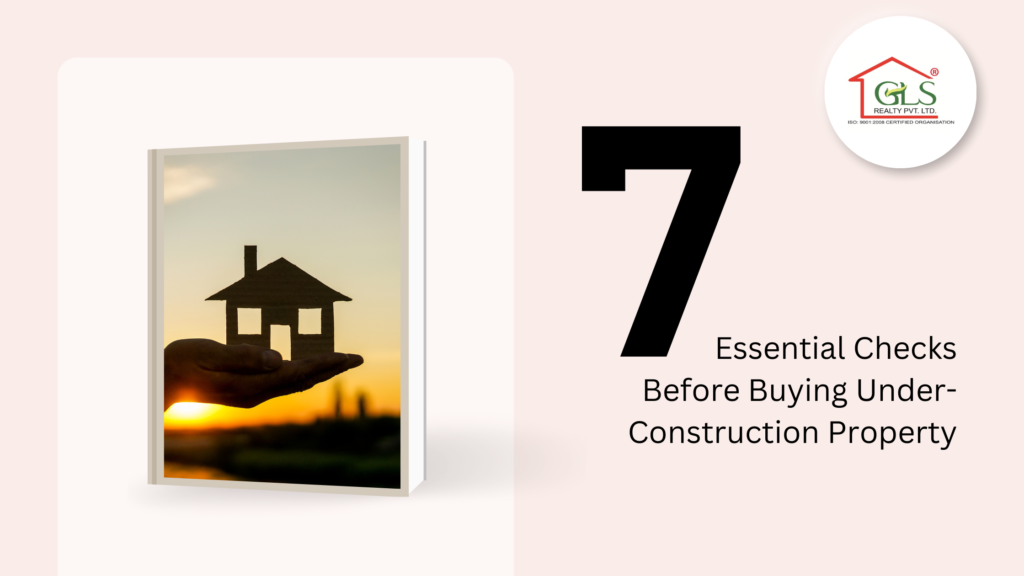The Indian real estate market offers a plethora of opportunities for aspiring homeowners and investors. With the government’s efforts to protect buyers and the launch of numerous under-construction projects, purchasing a property is now an enticing prospect. However, the decision to invest in an under-construction property demands careful consideration, as it involves a significant commitment of time and resources. In this blog, we will guide you through the seven crucial factors you must examine before diving into an under-construction property investment.
1. Check the Registration of the Property
The Real Estate (Regulation and Development) Act of 2016 has brought about a substantial change in the real estate landscape of India. Every builder is now required to register their property, offering complete transparency for buyers. As a potential investor, you have the right to verify all the information and documents associated with the project. This step ensures you’re protected and well-informed about the property you’re considering.
2. Verify the Builder-Buyer Agreement
When investing in an under-construction project, always carefully review the builder-buyer agreement. Pay close attention to the completion time mentioned in the agreement. It’s crucial that the contract includes a tentative possession date. Ensure that all promised facilities are explicitly stated in the document. It’s advisable to invest in projects that are 50% to 75% complete, as this minimizes the waiting time for your new home.
3. Check the Credibility of the Property Builder
Your choice of builder is paramount. Opt for reputed and recommended builders with a proven track record in the real estate sector. It’s also essential to check the builder’s financial stability to prevent potential disruptions in the construction process. Stay away from builders involved in legal disputes or facing numerous consumer complaints. A trusted real estate property developer ensures timely and high-quality project completion.
4. Changes in Building Plan
Under the RERA Act and its guidelines, any changes to the construction plan must be presented with the consent of the buyers. Before investing, thoroughly review the project details and confirm whether there’s a possibility of changes in the building plan. Remember that any alterations must have a valid reason and approval from at least two-thirds of the buyers.
5. Inspect the Price and Payment Modes
Under-construction properties typically come at a lower price compared to ready-to-move-in homes. This cost advantage allows you to save substantially. You also have the flexibility to delay moving in, providing you with time to stabilize both mentally and financially. Additionally, you can take advantage of installment-based payment plans, which can alleviate the financial burden associated with property investment.
6. Check if the Property Is Applicable for Bank Loans
If you plan to purchase an under-construction property with a loan, ensure that the project is approved by your bank. This ensures a thorough evaluation of the project and the developer, minimizing future complications. It also provides a level of protection for both the lender and the buyer. Banks can take legal action against developers if the project isn’t completed within the stipulated time.
7. Checklist for Documents
Carefully evaluate the property’s land title and examine ownership-related documents. Review mortgage rights and any obligations you may incur as an owner. Check the land use certificate to verify that construction aligns with residential zoning. Clearances, permissions, and certificates are essential. Ensure the project holds a certificate of commencement, which is issued only after thorough inspection and scrutiny of the builder’s license and permissions.
Take a closer look at the project site, verifying that the promised facilities are being installed and high-quality materials are being used. Assess the area for potential future opportunities, transportation, and essential amenities like hospitals, schools, banks, and markets. Examine the local environment and nearby construction projects for a comprehensive understanding of your potential investment.
By following these seven key factors, you can make an informed decision when investing in an under-construction property in India. Now, with answers to all your doubts, you’re ready to take that crucial step towards your dream home or real estate investment. With the right precautions and research, you can navigate the world of under-construction properties with confidence.



